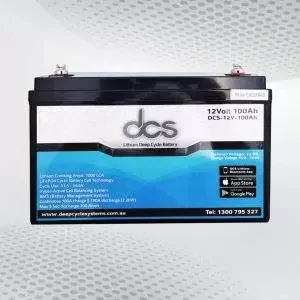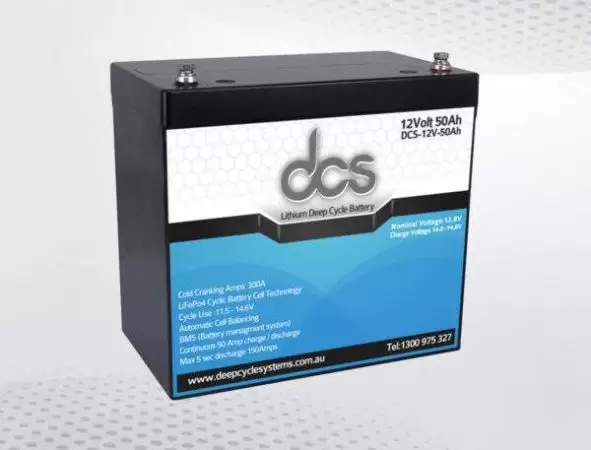Introduction
Long-lasting lithium batteries are common. They were first utilized in the 1970s but gained popularity in the ’90s. Now lithium batteries are utilized widely. Increased use of lithium battery has enhanced their technology and performance, making them safer and more efficient than ever.
Lithium starter battery rapidly start the vehicle engine
Electric cars use lithium starter batteries. These batteries are lighter than lead acid or nickel-cadmium batteries, hence they boost fuel efficiency. Lithium starting batteries have no memory effect; you can charge them at any moment without diminishing their capacity or lifespan. Due to their extended lifespan (three times longer than lead acid) and great power density, lithium starting batteries offer outstanding performance without losing weight or space.
Lithium-cranking batteries are utilized in lightweight cars.
Lightweight automobiles use lithium-cranking batteries.
The lithium-ion cranking battery is lighter and has more capacity than lead-acid batteries, but it costs more and lasts less..
Lithium-ion batteries are lighter in weight than nickel-cadmium or nickel metal hydride equivalents.
Lithium-ion batteries are lighter in weight than nickel-cadmium or nickel metal hydride equivalents and lighter again than lead acid batteries. Lithium iron phosphate (LiFePO4) batteries are also lighter than standard lithium-ion batteries, although they have lower energy density and shorter cycle life.
RV lithium deep cycle batteries last ten times longer than lead acid.
When compared to lead acid, lithium Rv batteries are more powerful, lighter, and can be charged at faster rates. Therefore, lithium batteries have a lifespan that is ten times that of lead acid batteries. Not only do lithium batteries last significantly longer, but they do not suffer from a memory effect, so you can drain them to zero and then recharge them without anxiety.
Lithium marine batteries last and perform well. Lightweight, resilient, and maintenance-free, our batteries charge rapidly, store safely, and withstand harsh temperatures and conditions.
Marine batteries made from lithium metal survive a long time and function effectively. Our batteries are lightweight, durable, and require no maintenance; they charge quickly, keep their charge for a long time, and can even survive extreme temperatures.
Lithium marine battery technology is rapidly replacing conventional batteries as the go-to for eco-conscious boaters who don’t want to give up their favourite water sports. Lithium marine batteries can be left unattended without worrying about leakage or damage from overcharging, unlike other types of batteries (such as lead acid) that need frequent maintenance or periodic replacement.
Lithium-ion batteries could also be used in electronic vehicles. Electronic vehicles with lithium batteries
Lithium-ion batteries are also being used in electronic vehicles, including electric cars and bikes. Lithium-ion batteries have several advantages over traditional lead-acid batteries, including lighter weight and higher energy density (the amount of energy that can be stored in a given space). These characteristics make lithium-ion batteries ideal for use in electronic vehicles as they increase the range of these vehicles. Lithium-ion batteries also have a longer life cycle than traditional lead-acid batteries—they last longer before needing to be replaced or maintained.
 Also important is that lithium has a relatively high recycling rate—that is, it’s easier to recycle than other materials like lead or mercury.
Also important is that lithium has a relatively high recycling rate—that is, it’s easier to recycle than other materials like lead or mercury.
Lithium solar batteries outshine conventional batteries when it comes to storing energy.
Lithium solar batteries are the ideal choice for storing solar energy because they’re lightweight, compact, and can be charged at higher rates than lead acid batteries. Lithium solar batteries also last up to 30% longer than conventional lead-acid storage systems.
Lithium batteries are maintenance-free and will not go flat or sulfate if you leave them disconnected for extended periods.
Lithium batteries are maintenance-free and will not go flat or sulphate if you leave them disconnected for extended periods. Just put them on the shelf and forget about them for a year, two years, ten years, or even longer! Lithium does not lose capacity over time like other types of batteries do when they sit unused (NiMH, NiCD). That means if you buy a lithium battery today, it will have 100% capacity in ten years without any loss in performance whatsoever.
This feature makes lithium batteries ideal for applications with high discharge rates, such as electric vehicles or power tools, and consumer applications, such as cameras and mobile phones, where periodic charge cycles are required to maintain full capacity.
Lithium batteries have around 10 times the cycle life of traditional lead acid batteries – typically 2000-5000 cycles, depending on discharge depth, charger efficiency and temperature.
Lithium batteries have around ten times the cycle life of traditional lead acid batteries – typically 2000-5000 cycles depending on discharge depth, charger efficiency and temperature. Cycle life is dependent on the depth of discharge and temperature of operation.
Lithium batteries can be used in any application where a lead acid battery would be used, such as:
- UPS Systems – Uninterruptible Power Supply (UPS) systems provide backup power for critical operations during power outages or blackouts. They can also enable equipment to be connected to the grid during normal operating hours without being impacted by transient voltage and frequency variations when large loads of load are suddenly added to or removed from an electrical distribution system.
Lithium batteries can be charged safely at much higher rates than traditional lead-acid batteries.
Lithium batteries can be charged safely at much higher rates than traditional lead-acid batteries. This is because they do not experience thermal runaway, a condition where the battery’s temperature rises dangerously high, and the storm begins to produce explosive gas. In addition to this safety feature, lithium batteries have a longer lifespan than lead acid batteries—typically three times as long when used in a similar environment.
The size of the entire battery is reduced by up to 80%.
Lithium-ion batteries are smaller than many of their predecessors, including nickel metal hydride (NiMH) and lead-acid batteries. They’re also lighter, which makes them easier to transport. Lithium-ion batteries have been commercially available since 1991 when Sony introduced them in its laptop computer line. These batteries were an improvement over previous designs because they were more efficient and more durable than other types of battery technology at the time.
A lighter-weight battery.
Lithium batteries are lighter than other battery types. This is due to their higher energy capacity, which means they can store more energy per kilogram. Lithium-ion batteries also have a longer life span and higher power output than other battery types.
Lithium batteries can last as much as 2x longer than traditional lead-acid batteries.
Lithium batteries are the pathway to a more sustainable future.
Lithium batteries can last as much as 2x longer than traditional lead-acid batteries. If you’re looking for an energy source that doesn’t involve fossil fuels, you should consider switching to lithium batteries for your next battery pack.
Lithium technology has undoubtedly made great strides in recent years, and it shows no signs of slowing down any time soon—or ever!
Lithium significantly improves cycle life, recharge time, weight, robustness and temperature performance.
Lithium significantly improves cycle life, recharge time, weight, robustness and temperature performance. The benefits of lithium-ion batteries are not limited to electric vehicles; they can also be applied to the grid. Utilities worldwide are looking at integrating large volumes of solar and wind power into their grids using lithium-ion batteries for energy storage.
Lithium batteries are superior to other solutions on the market
Lithium batteries are superior to other solutions on the market. Alkaline batteries, for example, are alkaline only—they don’t use alkali metals (aside from lithium). They’re corrosive and non-renewable and can only be manufactured with toxic chemicals. Those chemicals’ environmental and public health impacts make them unfit for sustainable use.
Lithium-ion batteries don’t have these problems: they’re made from lithium metal oxide, which can be mined using fairly low-impact methods such as open pit mining or hard rock mining (in which ore bodies aren’t dug out of the ground but rather removed by blasting or excavation). Lithium is also one of the most abundant metals on Earth; meanwhile, it’s much rarer than carbon in terms of global supply (meaning we’ll never run out), so there’s little risk that we’ll ever run out either!
Conclusion
Lithium-ion batteries are used in many applications like watches, calculators, computers, cameras, etc. They have no memory effect and can be charged at fast rates safely. Lithium batteries are also used in electric vehicles like cars and bikes, which run on renewable energy sources such as solar power.
With our years of experience designing and managing lithium batteries, we developed a stand-alone Cell Management System. Passive balancing is a cheap and poor form of cell management since it burns resistors to bleed cell strings. Active cell balancing redistributes charge between battery cells during charge and discharge cycles. DCS’s battery packs are active-cell balanced for optimal performance.

